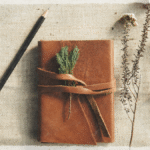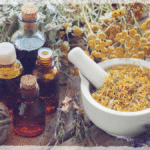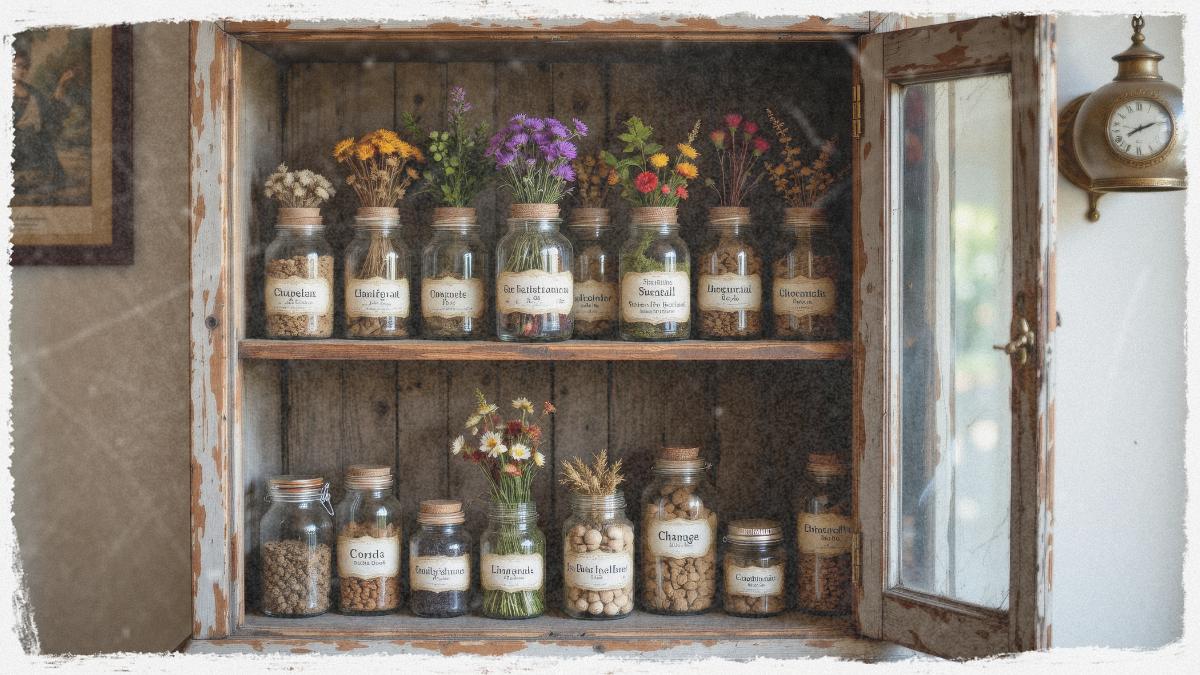1. What Is an Apothecary?
Hey there, herbal lovers! Have you ever wondered how people cared for their health before the age of modern pharmacies and big pharma? That’s where the apothecary comes in—a magical blend of nature, science, and tradition.
Historically, apothecaries were the healers, the pharmacists, the herbalists of their time. They prepared remedies from plants, roots, flowers, and minerals to support health and treat illnesses. Today, the apothecary spirit is alive and well in DIY herbal tinctures, salves, natural skincare, and wellness rituals.
In medieval times, apothecaries were often considered the most trusted health experts in their communities, combining knowledge of herbs with early medical science.
2. Why Is the Apothecary Making a Comeback?
In our modern world, more and more people are turning back to natural, chemical-free solutions. The apothecary offers:
- Personalized care—create your own blends and remedies.
- Sustainability—reduce packaging and waste by making your own products.
- Connection—to nature and ancient traditions that honor the earth and body.
- Holistic health—address mind, body, and spirit together.
Whether you want to craft your own soothing salves or immune-boosting tinctures, the apothecary lifestyle empowers you to take your wellness into your own hands.
3. Setting Up Your Home Apothecary: What You’ll Need
Starting small is totally fine! Here’s a beginner’s toolkit:
- Mortar and pestle (for grinding herbs)
- Glass jars with airtight lids (for storing tinctures and dried herbs)
- Droppers and measuring spoons
- Labels and markers (to keep everything organized)
- Common herbs like lavender, calendula, chamomile, rosemary, peppermint
4. 5 Simple Apothecary Recipes to Get You Started
1. Calming Lavender Sleep Spray
Mix distilled water, witch hazel, and a few drops of lavender essential oil. Spray on your pillow for a peaceful night.
2. Soothing Calendula Salve
Infuse calendula flowers in olive oil, then mix with beeswax and cool. Perfect for irritated skin.
3. Peppermint Digestive Tea
Steep fresh or dried peppermint leaves in hot water to soothe your stomach.
4. Rosemary Hair Rinse
Boil rosemary sprigs in water, cool, and use as a final hair rinse for shine.
5. Herbal Immunity Tincture
Combine echinacea, elderberry, and astragalus extracts in alcohol or glycerin base for an immune boost.
5. Tips for Storing and Using Your Apothecary Products
- Keep tinctures and oils in dark glass bottles away from sunlight.
- Label everything with dates and contents.
- Store dried herbs in cool, dry places.
- Use within recommended timeframes for best potency.
6. FAQs About Starting Your Apothecary
- Is it safe to make my own remedies?
Yes, but always research each herb and consult with a healthcare professional if needed. - Where can I buy good quality herbs?
Look for reputable online stores or local herbalists that offer organic products. - How long do homemade products last?
Generally, tinctures last 1-3 years; salves and oils up to 6 months.
7. Final Thoughts: Embrace the Apothecary Lifestyle
Building your own apothecary is more than just making remedies—it’s about cultivating a mindful, natural way of living. At The Herbatica, we’re here to support your journey with recipes, tips, and inspiration.
Which apothecary recipe are you excited to try first? Let us know in the comments!
Stay natural, stay well! 🌿✨
Disclaimer:
I’m passionate about sharing herbal knowledge, but this is not medical advice. Always consult your healthcare provider before trying new remedies.
- 20 Journal Prompts for Emotional Clarity & Soft Spiritual Growth

- Herbal Baths, Candles & Cozy Nights: Creating Your Evening Cottage Wellness Routine

- 🌿 Best Aromatherapy Recipes You Can Try: Boost Your Mood, Energy, and Calm

- Herbs for Protection: Ancient Magic for Modern Souls

- 🌿 Alfalfa (Medicago Sativa)



